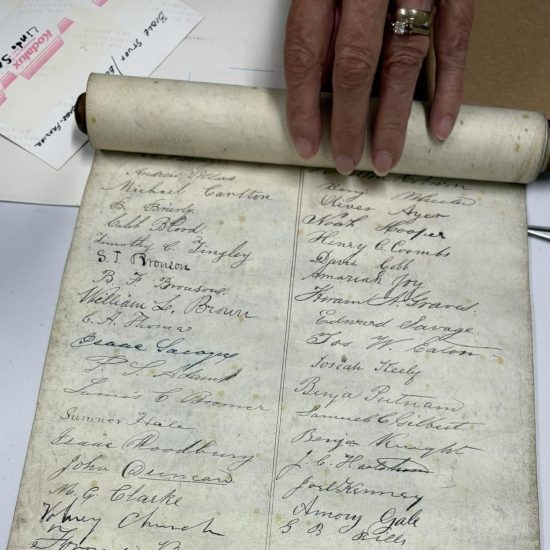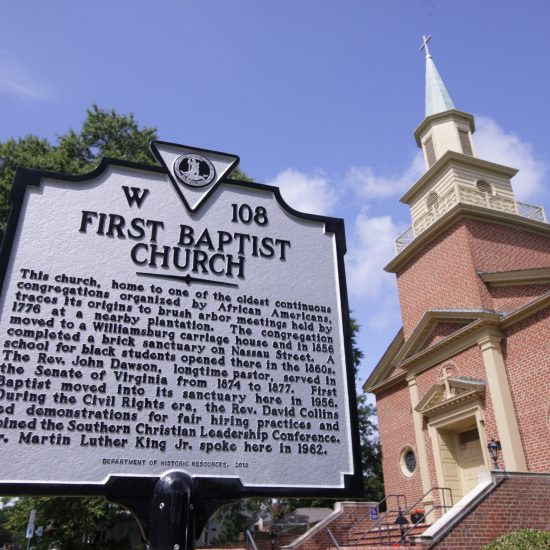(ABP) — The sexuality conference in April will raise many issues. But for the theologically minded, the most important issue will probably be the question of religious authority.

David Gushee
|
Who or what carries binding authority in the Christian life? If the question is, for example, sexual morality, who or what has the authority to establish norms to which Christians must adhere? In a cultural (and ecclesial) context of innumerable conflicting practices and beliefs, who or what has the authority to settle the matter? Or is that even a coherent question? At least, is it a coherent question from within the framework of Baptist ecclesiology and theology?
The winners in the SBC controversy of 1979-1991 claimed that their fight was always about (re)establishing the authority of the “inerrant, infallible Word of God” in the life of the Southern Baptist Convention. They sought to heighten claims first about the inspiration of the Bible and then about its authority in Christian life.
Sometimes, though not always, they acknowledged that it is not quite sufficient to anchor down claims about biblical inspiration and authority. They acknowledged that the Bible is always an interpreted text. Some person, office, or body must be responsible for “rightly dividing the Word of truth” (2 Tim. 2:15 KJV). Often referencing pastoral epistle texts, some SBC leaders heightened pastoral interpretive authority along with biblical authority.
So that is one answer to the question of religious authority. Raise belief in the inerrancy and authority of the Bible as high as possible, deflecting all challenges to such belief, then elevate the pastor’s role in authoritatively interpreting the Bible for the congregation. These moves imply if not demand a posture of submission on the part of the lay Christian, who is trained to yield to the authority of Scripture and to the teaching authority of the pastor.
This approach is not all that different from the Catholic tradition — a comment offered as observation, not criticism. The differences, of course, are that in Catholicism Scripture is treated as the first stage of Spirit-inspired tradition, and Scripture/tradition are interpreted authoritatively by the magisterium of the Church, organized hierarchically and headed by the pope. But both the current SBC and the Catholic approaches emphasize authority rather than freedom, submission to text and leadership rather than individual conscience or collective Christian discernment.
The potential benefits of such authoritative (if not authoritarian) approaches such are especially apparent when wrestling with issues like sexuality. Today all kinds of voices, both from within Christianity and outside it, are begging, cajoling, even demanding that Christians and churches rethink our purportedly oppressive, backwards, unrealistic, archaic sexual ethics. It would be so much easier — and less stressful — to simply go back to inerrant-Scripture-as-interpreted-by-pastor or inspired-tradition-as-interpreted-by-pope to resolve these issues.
Looking at some of the alternatives among non-SBC Baptists, in some cases I am really quite concerned. The Bible (at times) slips out of range of ever functioning as authoritative in any way that might compel behavior contrary to our preferences. Pastors (at times) abdicate any role of offering directive moral guidance through sermon or pastoral counsel. Christian tradition (at times) is sloughed off or treated primarily as a source of oppression.
Human beings are created good yet damaged by sin. In Christian morality we do need Scripture, pastor and tradition to help us discern God’s will for our lives. We need some kind of voice speaking to us to which we grant some kind of authority to exhort, correct and redirect our desires.
I believe we need a heightened role for communal Christian discernment, for listening to the voice of the Spirit together as we seek to follow Jesus together. I believe we need to read the signs of the times and hear the voices of marginalized and suffering people, for in their sorrows we can encounter Jesus himself. I do believe that Scripture can be wrongly interpreted and that both pastors and tradition can be and sometimes are quite wrong.
But I do not believe we do well to jettison all authorities outside the freely choosing Christian self, so prone to interpret fallible emotions and desires as divine authorization. Certainly we can and must do better than that.
David Gushee is distinguished university professor of Christian ethics at Mercer University.
EDITORIAL DISCLAIMER: As part of our mission to provide credible and compelling information about matters of faith, Associated Baptist Press actively seeks a diversity of viewpoints in its columns, commentaries and other opinion-based content. Opinions expressed in these articles are not intended to represent ABP editorial policy and do not necessarily reflect the views of ABP's staff, board of directors or supporters.
Previous related articles:
About the Baptist sexuality conference
CBF, Mercer collaborate to offer conference on sexuality in 2012






